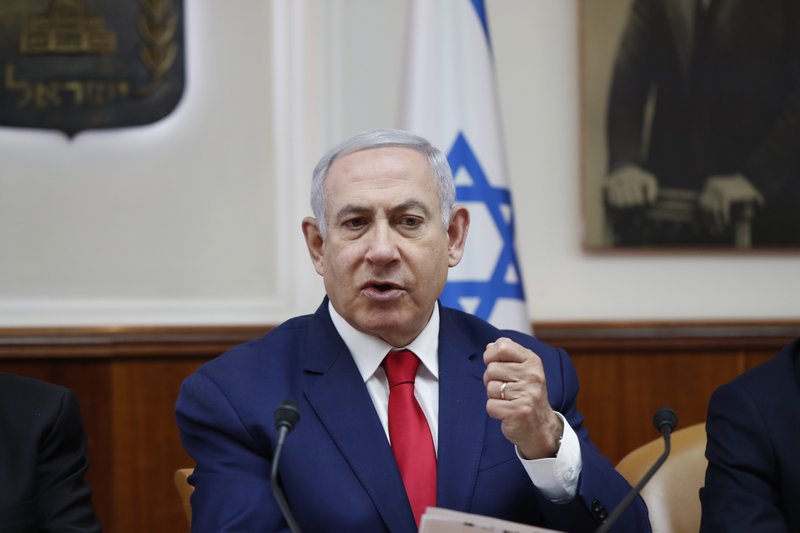JERUSALEM -- Israel's president on Wednesday formally nominated Benjamin Netanyahu for a fourth-consecutive term as prime minister.
In one of the president's few nonceremonial roles, Reuven Rivlin made Netanyahu responsible for assembling a governing coalition within 42 days.
The move was widely expected after Netanyahu's Likud party and its right-wing allies captured a majority of seats in parliamentary elections last week.
In a joint appearance after the two leaders signed and presented the official nomination, Rivlin called on Netanyahu to "heal the wounds and rifts" laid bare in Israeli society by the bruising election campaign.
Netanyahu said he was "moved" to accept the nomination as prime minister "as though it's the first time, and in a certain way, even more than the first time."
He said he would "do everything to earn the trust that the citizens of Israel have bestowed on me."
In a postelection ritual, Rivlin hosted consultations with party leaders this week to hear their recommendations for who should serve as prime minister.
Netanyahu's nationalist and religious allies lobbied for Netanyahu to continue as prime minister. The last one to hold out, former Defense Minister Avigdor Lieberman of the hawkish Yisrael Beitenu party, formally confirmed his support for Netanyahu late Monday.
Netanyahu's right-wing bloc -- made up of Kulanu, the Union of Right Wing Parties, Yisrael Beitenu and the ultra-Orthodox Shas and United Torah Judaism -- now commands a 65-55 majority in the 120-seat parliament.
In the coming weeks, Netanyahu will have to negotiate coalition deals with his partners, who will jockey for Cabinet posts.
If Netanyahu fails to form a coalition within 42 days, then Benny Gantz, leader of the rival centrist Blue and White party, would be given a shot at assembling a government.
"We will establish a right-wing government as soon as possible, likely within a month," said Yonatan Ulrich, a spokesman for Netanyahu.
If he forms a coalition, Netanyahu will serve his fourth-consecutive term and fifth overall. In a matter of months, Netanyahu will officially become Israel's longest-serving prime minister, surpassing David Ben-Gurion, the country's founding father.
Also on Wednesday, Israel's envoy to the United Nations said his country isn't likely to take any steps toward one of Netanyahu's key campaign promises, the annexation of parts of the West Bank, until after President Donald Trump releases his long-promised Middle East peace plan.
The ambassador, Danny Danon, said that though Netanyahu vowed before the election to extend Israeli sovereignty over parts of the territory, Israel wants to honor the American peace efforts spearheaded by Trump's son-in-law, Jared Kushner.
"I don't believe there will be any movement from our side until we see the plan," Danon said. "We'll wait, we'll engage, and then we'll decide."
In making his pledge, Netanyahu fanned the hopes of Israeli nationalists while raising concern throughout the Arab world, which sees the territory as part of a future Palestinian state. More than 400,000 Jewish settlers and almost 2.9 million Palestinians live in the West Bank.
Israeli leaders have held back from annexations on the West Bank for more than 50 years, aware of the international criticism it would draw if Israel were to claim sovereignty over territory it captured from Jordan in the 1967 Middle East war. It's been ruled an illegal occupation in numerous U.N. resolutions.
Information for this article was contributed by staff members of The Associated Press and by David Wainer of Bloomberg News.
A Section on 04/18/2019
